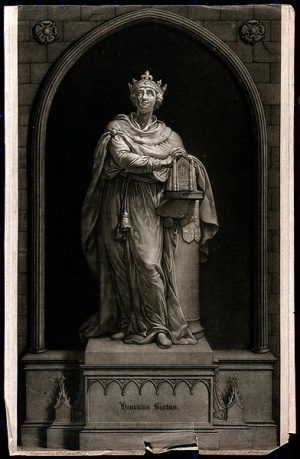Tenth Friend: Henry VI, "Kingdomes are but Cares"
This poem is of interest partly because it’s good on its own terms, but also because of who wrote it. Today’s friend, you see, is none other than King Henry VI. There have been a few monarchs who’ve written poetry, but not many. At least, not in English culture; in Japan, for example, it was very common, and emperors are well-represented in classic anthologies there.
In any case, in this poem, His Majesty reflects on his own royal position:
Kingdomes are but cares;
State ys devoyd of staie;
Ryches are redy snares,
And hastene to decaie.
Plesure ys a pryvie prycke
Wich vyce doth styll provoke;
Pompe, unprompt; and fame, a flame;
Powre, a smouldryng smoke.
Who meenethe to remoofe the rocke
Owte of the slymie mudde,
Shall myre hymselfe, and hardlie scape
The swellynge of the flodde.
Now, I should point out that this poem is attributed to Henry VI, but there is some question about that. Representative Poetry Online’s editors point out that the poem is written in 16th Century English, as seen in the use of “staie,” meaning “stay” or “support,” for example. Henry, keep in mind, died in 1471. They say it is possible, though, that this is translated from a Latin original, so we’ll go with that. A translation would also make sense of the odd rhyme scheme, which threw me off when trying to memorise this. The first quatrain is rhymed abab, so I expected the rest to be cdcd efef, but it’s not. It’s cded fghg.
The theme, of course, is an expression of “What hath a man of all the labour that he taketh under the sun?” It’s a sentiment that always appeals to me, and it certainly matches His Majesty’s character. In discussing Shakespeare’s 3 Henry VI, regarding the scene in which Henry disguises himself as a monk, I commented that he probably would’ve been happiest had he abdicated and joined a monastery (assuming, of course, such a thing had been possible). Assuming this poem is genuine, he certainly had the disposition for it.
